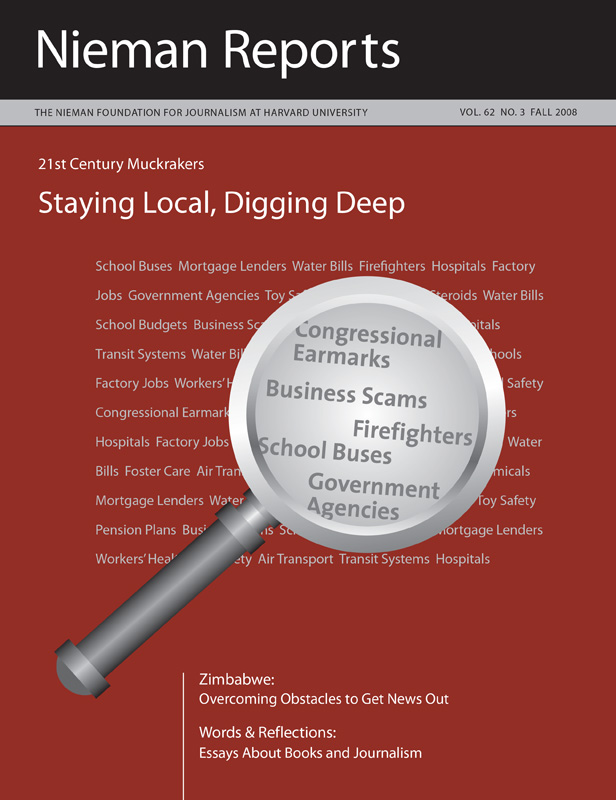ISSUE
Fall 2008

21st Century Muckrakers: Staying Local, Digging Deep
On this point, editors, reporters and newspaper readers agree. In a time of cutbacks and a shrinking news hole, at a moment when print is in peril and digital is dominant, watchdog and investigative reporting must remain at the core of journalism’s mission. In this third part of our 21st Century Muckrakers project, editors and reporters speak to how metro and regional newspapers are confronting the enormous challenges of today and offer clues to where this kind of reporting will likely be headed tomorrow.